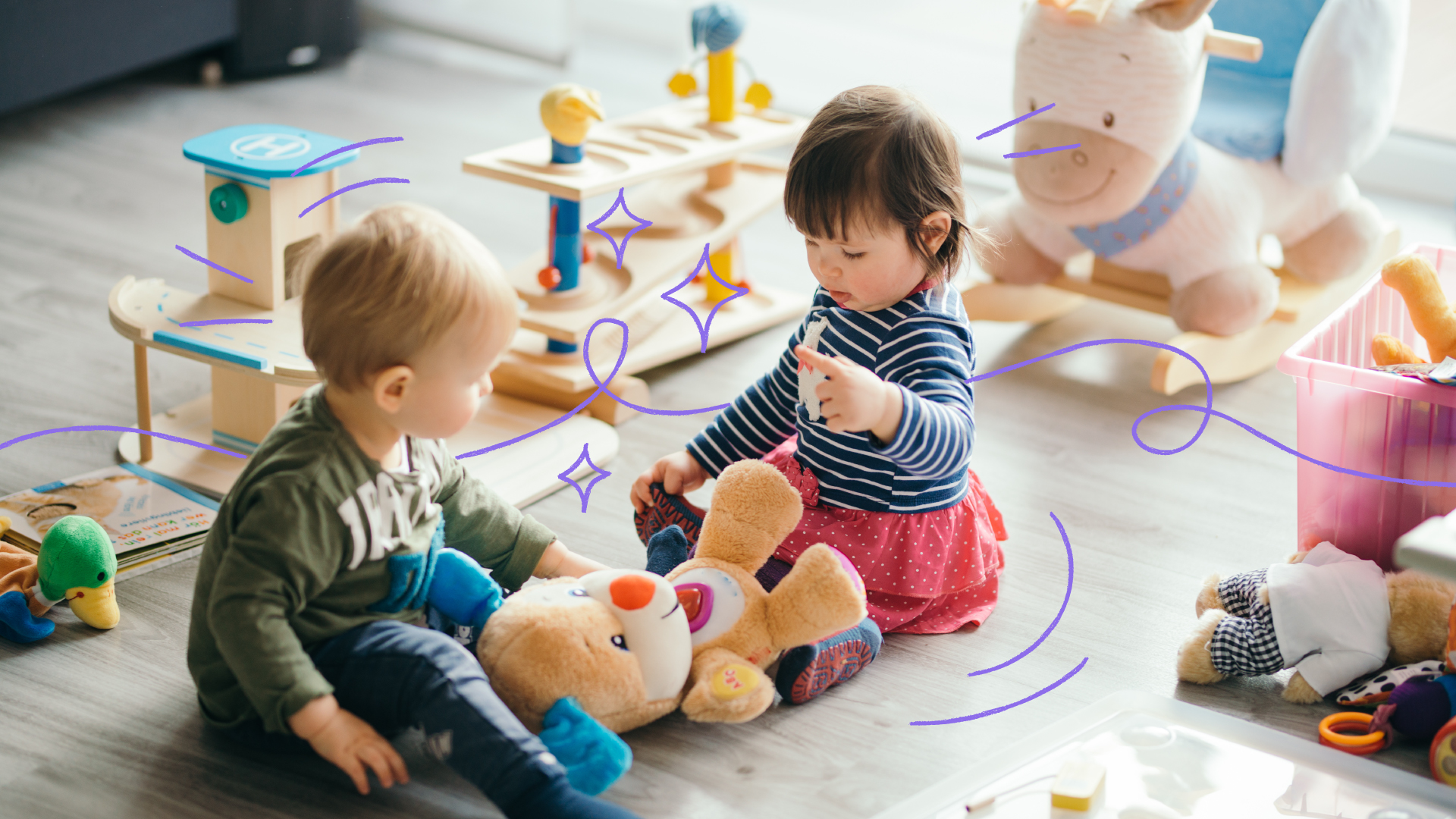
- 2 mins
5 Activities to Get Your Toddler Outdoors

Sharing is tough. It is tough as a child, it is tough as an adult. Let me paint a picture. You are at a playdate at a school parent’s house. Your toddler and their child are playing with the toy cars. Your child is struggling to share. They snatch the red car from the other child’s hand, but also want the blue car. They scream and cry for the blue car as well. Your face floods pink, you feel yourself fill with embarrassment. You ask yourself, what is wrong with my child? And you persist to apologise for your child’s behavior. Or perhaps you remove your child from the play, away from company, to speak to your child. You may encourage your child to apologize.
Many of us have been in this situation before. It can be so tricky to know the right thing to do? Is there a right or wrong? A lot feels at stake here. Friendships between the children. Friendships between the parents. What might they think? What will they say? So, how do we manage these embarrassingly tough moments?
What can be helpful for parents is to understand a child’s brain development in those core early years when we, as parents, are encouraging our child’s social and emotional skills. Before three years old, a child’s brain is simply not yet developed enough to comprehend the concept of sharing what they had with someone else. Children this age are still so focused on their own wants and needs. Intentional sharing happens a little later, around 3-4 years old. What we can do as early as infancy is teach sharing and taking in turns to toddlers. By modeling these, we are also teaching our children compassion and kindness.
Explain that your child is busy with the toy and when they are finished, the other child can have a turn. For example, “Logan is busy using this toy, he will give you a turn when he is finished.”
Sharing is tough. When teaching your toddlers to share, consider saying something along the lines of, “I know this is tough for you. You want to play with that ball and you can’t right now. You feel upset you can’t have the ball right now. I wonder what we can do while you wait?”
This empowers the child who has the toy first and promotes impulse control and patience. Try, “It’s Rafferty’s turn right now, when he is finished, you can have a turn. I can help you wait or we can find something else to do while we wait?”
This is when you can empathize with their feelings. For example, “You both want the ball. Florence has it and you really want it too.”
Practice taking turns at home during day-to-day activities and in role-play. Sharing is a learned skill that requires modeling. Practice the sharing lingo so your child feels confident in those moments – asking kindly and waiting patiently.
Be present to ensure no harm is done. If this is not possible, step in and offer them choices. You can even use visual timers and reminders. Consider this, “It looks like you want to use the color pen that Reya has right now. Let’s ask Reya if we can use it once she is finished. Reya, would you like to give Logan a turn in one or two minutes?”
This tells them that their needs don’t matter and tells the toddler demanding the toy that waiting is not needed.
Sharing requires empathy and this requires your guidance. For example, “I noticed your friend waiting to use the book. You are having a turn right now and soon we will finish reading and give her a turn.”
Advanced exploration of possible situations can be useful. Perhaps before a playdate, it may be an idea to ask your child if there are any toys they would like to put away while their friends are here. This can help hugely with sentimental and special toys that may provoke big feelings.
Yes, children snatching from each other is inevitable and you may constantly hear the word ‘MINE’, but be persistent in your modeling and calm in your approach as you teach your child how to take turns.
It can be so tempting to take the toy from your child and hand it to the child wanting it. Try not to do this. Instead, offer choices to your own child and the child wanting a turn.
Remember! It is OK for a child to play with a toy for as long as they want. They will choose to share as they develop these skills. What we can do is can teach our toddlers that what is not being played with, is available. If they want what another child has, we can model.
Finally! Praise them. Celebrate those moments when they have taken turns, with or without your support. Children need to be validated and praised.